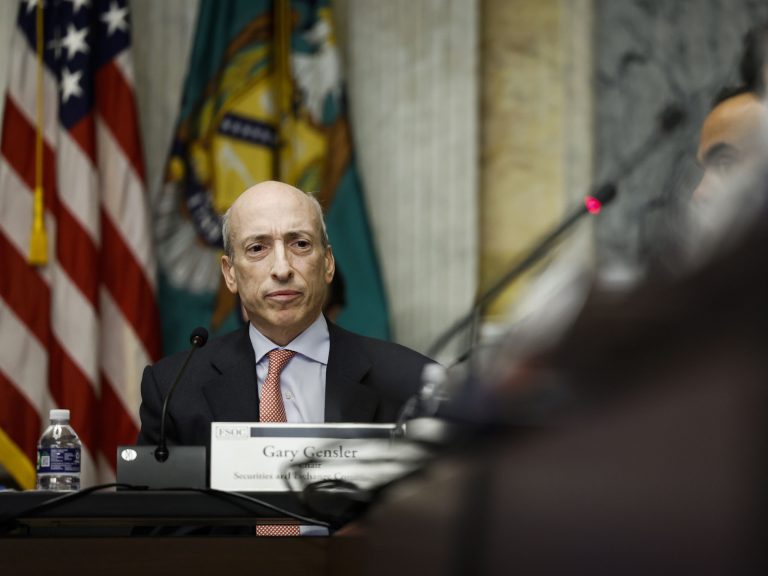A coalition of seven U.S. states has united to contest the Securities and Exchange Commission’s (SEC) cryptocurrency regulation.
Under the leadership of Iowa Attorney General Brenna Bird, the states have submitted an amicus brief in which they contend that the SEC’s attempt to regulate cryptocurrencies is a “power grab” that would impede innovation, harm the crypto industry, and exceed the agencies’ authority.
Oklahoma is the most recent state to join the coalition, including Arkansas, Indiana, Kansas, Montana, and Nebraska.
States Oppose the SEC’s Expansion of Power
The states filed the amicus brief on July 10 in a concerted effort to resist the SEC’s perceived excess.
According to the filing, the SEC’s actions can potentially obstruct states from protecting their citizens from fraud and disrupt the free market.
States such as Iowa have been proactive in prosecuting wrongdoers and safeguarding victims of scams, and they perceive the SEC’s actions as an infringement on their jurisdiction.
“The Biden SEC is attempting to obstruct states such as Iowa from fulfilling their obligations to safeguard families from the perils of cryptocurrency scams and hold criminals accountable,” stated the filing.
“This power grab will also harm the free market and enable the SEC to assume regulatory control over the cryptocurrency industry without any accountability,” the announcement continues.
According to the Iowa Attorney General’s Office, the SEC’s actions are unlawful because the agency is circumventing Congress to acquire new powers.
It argues that the SEC needs to be authorized to regulate cryptocurrencies, underscoring the absence of accountability to guarantee the legitimacy and necessity of the agency’s actions.
The SEC’s purported violations of the Administrative Procedure Act and the Major Questions Doctrine are the primary focus of the amicus brief.
The states contend that cryptocurrencies, in their conventional form, do not meet the definition of investment contracts as defined in the Securities Act of 1934.
They urge the court to prevent the SEC from exceeding its authority and overstepping the boundaries established by Congress.
SEC Commissioner Declares Agency in “Enforcement-Only Mode”
SEC Commissioner Hester Peirce stated earlier this year that the regulatory agency operates in an “enforcement-only mode” of regulating cryptocurrencies.
Peirce, recognized as one of the five commissioners of the Securities and Exchange Commission (SEC) and has a pro-crypto posture, acknowledges the responsibility of industry participants in preventing legal disputes.
“If we had more well-defined regulations, you could concentrate on construction,” she stated.
Although Peirce emphasized that her opinions were her own, she openly expressed her dissatisfaction with the SEC’s propensity to render judgments on cryptocurrencies as an asset class.
She observed that excessive regulation would impede innovation and advocated for a more collaborative and empathetic approach.
The Securities and Exchange Commission (SEC) concluded its three-year inquiry into Hiro Systems last week.
The regulatory body has again chosen not to pursue enforcement actions against crypto entities, as evidenced by the agency’s conclusion of the investigation just one day after it closed a separate case involving stablecoin issuer Paxos.



